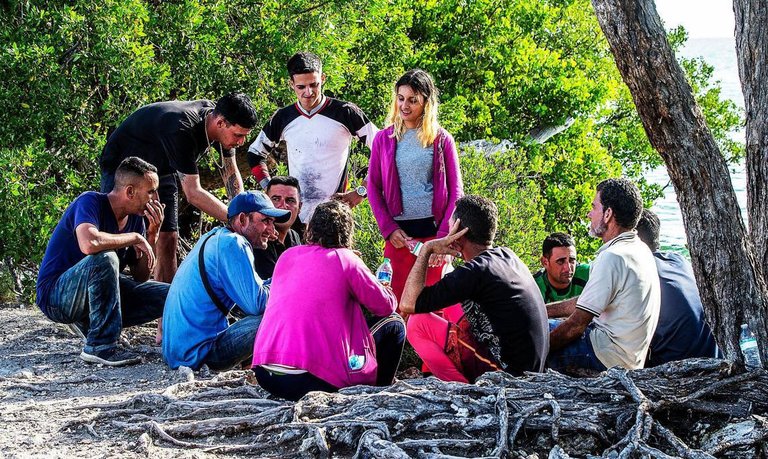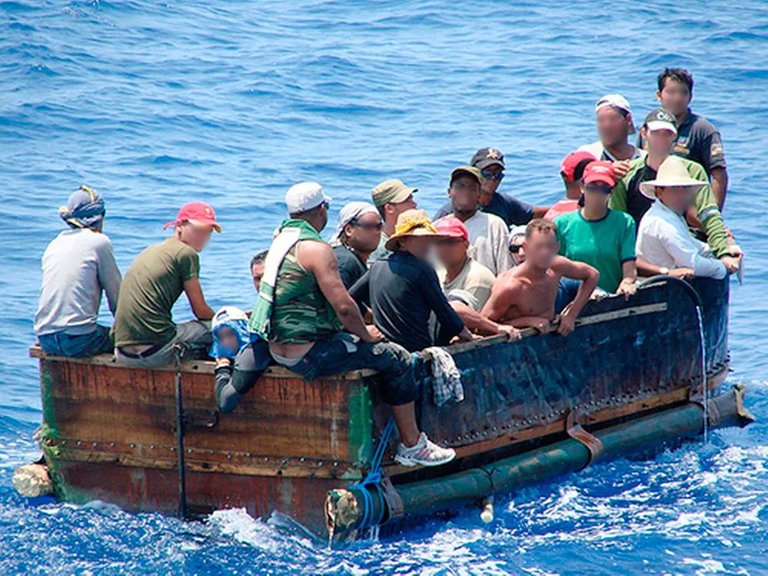The Latin American Report # 330

Today, in a dangerous dynamic when it comes to Cuba, I talked with three great friends, and former classmates, about politics. I say it is a dangerous dynamic because I have lost friends and have been expelled from virtual spaces by some people because of my way of thinking, which goes a bit against the trend that prevails in my generation. My three friends, with whom I share a closed group on Whatsapp, are based indistinctly in Uruguay, the United States, and Ireland. The “European” was the one who placed the forced foot to start the discussion, sharing an interview with “El Micha”, a Cuban singer, in which he reacts quite annoyed to the insistence of the presenters to make him talk (badly) about Cuba.
“El Micha” is one of the few Cuban artists who, based in Miami, has dared to claim his right to return to his country as many times as he wants, a sacrilege in the virulent political environment that characterizes South Florida. Whoever does not assume the rhetoric and the code of life of the so-called “historical exile” in the United States, does not fit in the community. Everyone, especially those who have a certain social influence, as is the case of artists, must “define themselves”, “take a stand against the dictatorship”, and “have a political commitment”, or else they will be excommunicated. If you “take asylum” in Miami, it is not ethical to return to Cuba.
So, "El Micha” has rebelled against all this. But above all against those who pretend to set themselves up as representatives or members of the “historical exile”, which is a category that does not include the Cuban economic migrants of the 21st century. Of course, every migration event ultimately has a political connotation or basis, but what I mean when I refer to “21st-century economic migrants” is that most of the recent Cuban emigration—which includes my friends—cannot claim to have been victims of the turbulent wave that was the Cuban Revolution in its early years. Look, my friends and I graduated without paying a cent from a top career anywhere in the world, computer science, at a university created by Fidel Castro. The profitability of Castro's gamble has been on the side of the graduates, two-thirds of whom, I conservatively estimate, now live outside Cuba.
 Cuban migrants (source).
Cuban migrants (source).But, returning to the subject of "definitions", a point I discussed with my colleagues is that the Cuban artist is pressured to fix a political position. Still, the same does not happen with artists of other nationalities who also have their problems, in some cases socially more pressing than Cubans. The island is not a space where extraordinary negative things happen every 24 hours. To be clearer, if I were to chronicle only the Cuban reality in my Latin American reports I would not have much content to share. Cuba is not a place where 43 young people disappear one day and ten years later there is no answer, or where a few decapitated corpses appear with a hat on (or with a pizza box nailed to) their chest. Cuba is not where eight travelers are massacred in a car, where organized crime and armed groups in general have the government and civil society by the neck because they can decree curfews, and isolate entire communities to confront each other with clean lead. Social leaders are not assassinated here. Cuba is not where there are thousands of children lacking practical access to basic education and health services, even though the coverage and quality of both have declined in recent years here.
Yet there are very few national groups based abroad that execrate an artist for not speaking out about these situations. As I told my colleagues, in the end, the motive of Cuban migration is as economic as that of Latin American migration in general. Very few leave because they cannot elect a president once every four years, or because there are no political parties, or because they are being persecuted. And these are issues of Cuban democracy that we can discuss, and I have done so on several occasions. People leave because they want to prosper more or because they want to eat. So if this, as is true, has a political basis behind it, it applies to everyone, and more so for some cases. My former classmates see this the other way, but they keep loving me anyway, and that's a victory.
 Source
SourceAnd this is all for our report today. I have referenced the sources dynamically in the text, and remember you can learn how and where to follow the LATAM trail news by reading my work here. Have a nice day.

